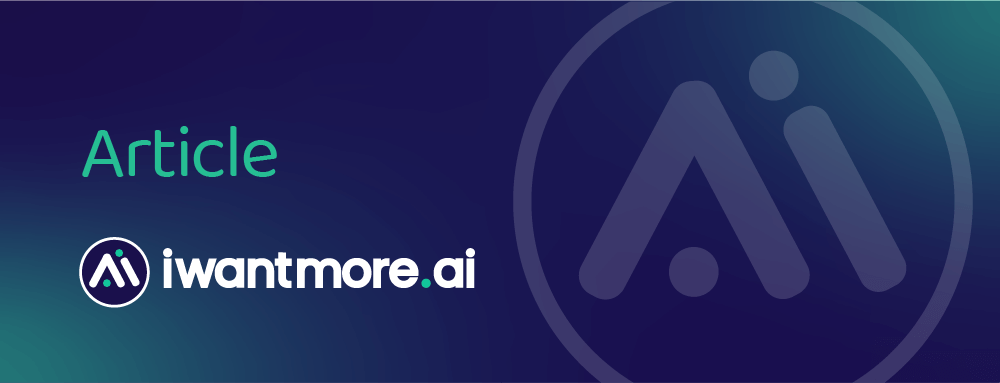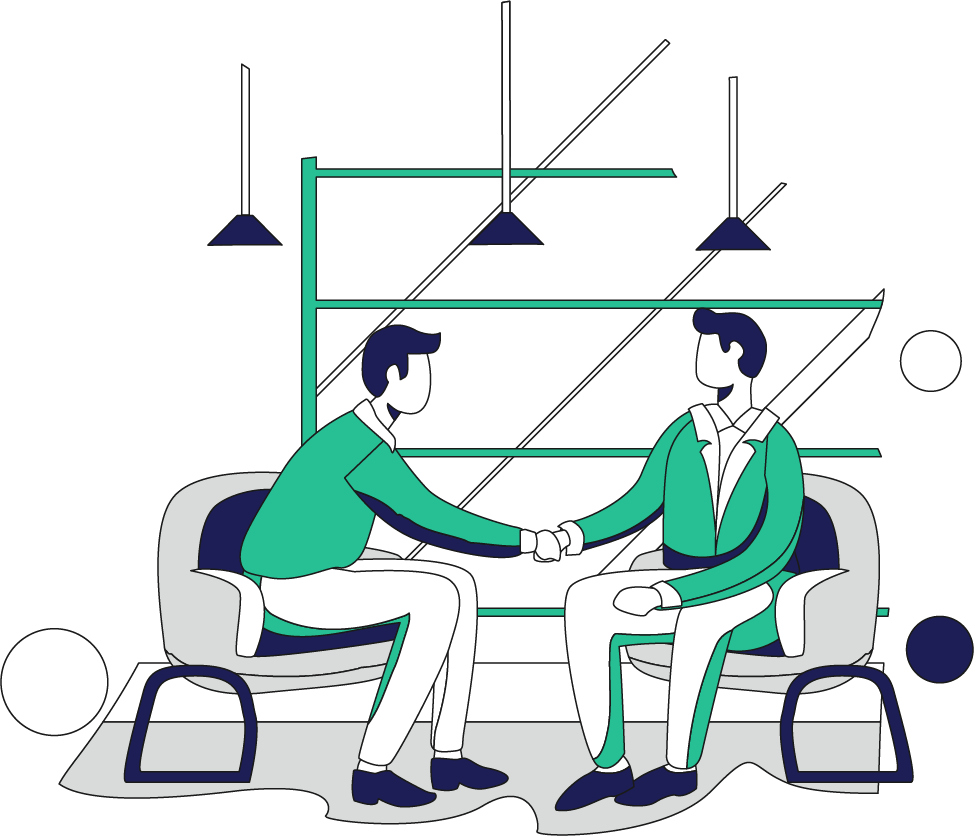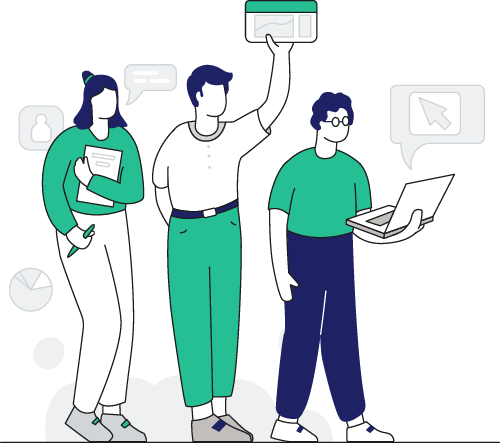
What’s the difference between traditional automation and AI powered agents?
We decided to write this article because many of our clients have shared that they’re confused about the differences between traditional automation and AI-powered agents. Our goal is to provide a straightforward overview that offers a baseline understanding. Whether you’re new to automation or just want to stay ahead of the tech curve, we hope this summary will help clarify the key distinctions.
Why the confusion?
Traditional automation tools like UiPath, Power Automate, and Automation Anywhere have been around for a while, helping businesses streamline repetitive tasks. But now we’re seeing a new wave of automation tech: AI-powered agents that can learn, adapt, and make decisions on their own. Understandably, this shift has led to a lot of questions:
- What exactly can AI agents do that traditional automation can’t?
- When should I use one approach over the other?
- How do I know what it’s doing?
- How do I get started?
This article aims to answer these questions by providing a simple comparison between traditional automation tools and AI agents.
Traditional automation tools
Tools like UiPath and Power Automate excel at automating repetitive, rule-based tasks. They work off predefined rules and workflows, making them predictable and reliable for specific, unchanging processes.
Strengths:
-
Great at structured tasks with clear rules.
-
Highly effective at repetitive activities like data entry, invoice processing, and report generation.
-
Proven track record of improving operational efficiency.
Limitations:
- Limited adaptability: When the process changes, you often have to reconfigure or reprogram the workflow.
- No learning: These systems don’t learn or evolve; they only do what they’ve been explicitly told to do.
- Require human intervention for exception handling and process updates.
AI agents: The next generation of automation
AI agents represent a leap forward. Rather than just following preset workflows, AI agents are designed to perceive their environment, reason based on data, and act autonomously to achieve specified goals. They leverage machine learning, natural language processing, and other AI technologies to operate with agility and intelligence.
Key capabilities of AI agents
- Autonomous decision-making
Can analyse data and identify patterns without explicit programming or human intervention. - Learning and adaptation
Learn from experience, improving performance and tackling new scenarios over time. - Complex problem-solving
Handle challenges involving reasoning, planning, and problem-solving. - Natural language understanding
Understand and respond to human language, enabling more intuitive interactions with users. - Personalisation
Retain past interactions for personalised experiences; can use tools to complete tasks without human help. - Seamless integration
Integrate easily with existing platforms, minimising disruption and lowering adoption barriers.
| Feature | Traditional Automation Tools | AI Agents |
|---|---|---|
| Decision making | Rule-based, predefined workflows | Data-driven, autonomous decision-making |
| Adaptability | Limited, needs reprogramming for new scenarios | Adaptive, learns from experience |
| Complexity | Best for structured, repetitive tasks | Excels at complex, dynamic situations |
| Human intervention | Requires human oversight for exceptions and changes | Operates autonomously with minimal input |
| Learning | No built-in learning capability | Continuously learns and improves |
| Examples | Data entry, invoice processing, report generation | Customer service bots, fraud detection, personalised recommendations |
One major distinction is autonomy. Traditional automation typically requires human oversight for exceptions. AI agents, on the other hand, can learn from experience, make decisions based on historical data, and adapt to unforeseen circumstances – all with minimal human intervention.
Use cases and applications
Traditional automation tools Data entry Invoice processing Report generation System integration Workflow automation
AI agents Customer service chatbots Fraud detection Personalised recommendations Lead nurturing emails
What’s next?
Both traditional automation tools and AI agents have their places in modern businesses. Traditional tools are perfect for straightforward, repetitive tasks. AI agents, however, will shine in dynamic, data-rich environments where the ability to learn, reason, and adapt is crucial.
The next 12 months is going to be really interesting. You can check out the predictions from some of the major players in the industry in this article. As AI technology keeps evolving, expect AI agents to become even more sophisticated and pervasive, transforming how businesses operate and interact with their customers. We may also see hybrid solutions emerge – traditional automation enhanced with AI capabilities, offering the best of both worlds.
The human factor
An important factor in all this is trust and human acceptance of AI acting responsibly to complete the task. While AI agents open up exciting possibilities, they also raise questions about the future of work. As more tasks become automated, workers will need new skills and roles. The emphasis will shift to collaboration between humans and AI agents, ensuring that we harness technology in ways that benefit everyone. A lot of the business leaders that we are speaking to are focused on AI being used as ‘human augmentation’ where possible removing the mundane admin heavy tasks and increasing the time available for their people to focus value add tasks for the business.
In summary
- Traditional automation is rules-based, structured, and highly effective for well-defined tasks.
- AI agents adapt, learn, and operate autonomously, making them well-suited to tackle complex challenges in rapidly changing environments.
Our hope is that this article clarifies the fundamental differences between traditional automation and AI agents, and gives you a baseline understanding to move forward confidently, whether you’re integrating an existing process or planning your next strategic initiative in the automation space.
About iwantmore.ai
We are an AI consulting firm who are helping clients demystify all things AI and automation and highlight where the latest innovations can add value to their business. If you found this helpful or have more questions, feel free to contact us.
Interested in more content like this? Sign up to our Newsletter here.
Other AI articles you may be interested in:

Governments across the world are racing to develop and deploy AI, but their approaches couldn’t be more different. The United States, China and the United Kingdom have all released formal action plans in 2025 that give us a clear sense of their priorities, politics and philosophies on AI. Here’s what they’re doing and what it tells us.

Governments across the world are racing to develop and deploy AI, but their approaches couldn’t be more different. The United States, China and the United Kingdom have all released formal action plans in 2025 that give us a clear sense of their priorities, politics and philosophies on AI. Here’s what they’re doing and what it tells us.

We say it to every business we meet. Regardless of the project, you can have the coolest, sexiest, best bit of tech out there, but without the people being on board it is a complete waste of time and money. Rolling out AI is no different. It’s about people. What’s the best way of bringing people along on any tech journey? Other people.

Artificial intelligence is hungry for energy. Behind every chatbot, Copilot, or agent are servers burning a lot of power. As more UK companies adopt AI tools, it's worth paying attention to how much energy those tools use and what that means for your sustainability targets and reporting requirements.

AI is no longer a future trend — it’s a present-day advantage. While some businesses are building AI agents and transforming operations, others risk falling behind. This article looks at what’s driving the AI divide, why foundational knowledge matters, and how even small steps can unlock real competitive value. If you’re standing still, you’re already losing ground.

It was only a year or two ago that the role of prompt engineer was being touted as the next great career path. Thousands of job ads appeared. People the world over updated their LinkedIn profiles to highlight their prompt engineering skills. Fast forward a couple of years and the role is already on its way out.
iwantmore.ai – The AI consulting firm that helps you build a smarter business
Wherever you are with your AI implementation initiatives, we have a range of stand-alone AI quick start services to help you fast track the transformative benefits of AI across your business.



